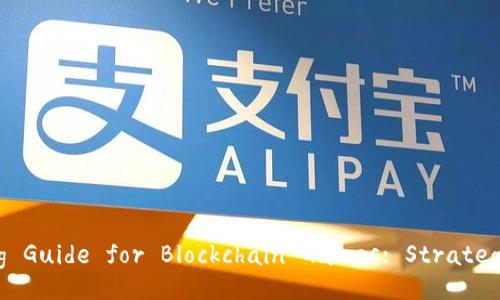Title:Comprehensive Planning Guide for Blockchain Games: Str2025-04-14 06:40:41
In recent years, blockchain technology has revolutionized various industries, and gaming is no exception. The intersection of blockchain and gaming has birthed an innovative sector known as blockchain gaming, where players engage with decentralized games that often integrate tradeable assets such as Non-Fungible Tokens (NFTs). This comprehensive guide aims to detail a planning strategy for developing a blockchain game, accommodating both newcomers and seasoned developers by covering essential components and best practices for crafting a successful gaming experience.
Introduction to Blockchain Gaming
Blockchain gaming refers to games that use blockchain technology to manage in-game assets, trades, and sometimes even gameplay mechanics. This technology allows players to truly own their digital assets, which can enhance the gaming experience and promote player investment. Unlike traditional gaming, players can buy, sell, or trade their assets in a decentralized marketplace, creating opportunities for real-world economic impact.
The Importance of Game Design

A successful blockchain game begins with a robust game design. Game designers must consider what makes a game exciting, engaging, and replayable while integrating blockchain mechanics. The essence of the game should align with blockchain technology's strengths, such as ownership authenticity, security, and verifiable scarcity.
When crafting a game concept, you should establish the game's genre. Will it be a strategy game, a role-playing game (RPG), or an action-adventure title? Understanding the audience and their preferences is critical, as this will shape not only the game's design but also its economic model. The success of blockchain games hinges on creating an ecosystem where players feel they receive tangible rewards.
Key Components of a Blockchain Game
Several critical elements need to be included in the framework of a blockchain game to ensure its success:.
- Tokenomics: Design a balanced economic system within the game that includes in-game currencies and assets that players can buy, earn, or trade.
- NFT Integration: Incorporate unique digital assets that provide players with ownership and economic opportunities.
- Smart Contracts: Use smart contracts to automate processes, ensuring transparency and security in transactions.
- Decentralization: Create a decentralized environment in which players can interact freely without a central authority managing all actions.
Market Research and Community Engagement

Before launching a blockchain game, it's crucial to conduct thorough market research to understand what works and what doesn't. Analyze existing games in the crypto space, identify gaps, and explore player feedback. Community engagement should begin at the conceptual stage, as building an audience from the start can lead to a more streamlined launch and sustained popularity.
Utilize platforms such as Discord, Reddit, and Twitter to interact with potential players. Encourage transparency and participate in discussions. By involving the community in the development process, you can shape a game that meets market demands while fostering a loyal player base.
Monetization Strategies
The monetization of blockchain games differs from traditional methods. While in-app purchases are common in conventional gaming, blockchain games offer unique opportunities through asset ownership and trading. Explore various monetization models:
- Initial Coin Offerings (ICOs): Raise funds for the game's development through token sales before the game's launch.
- Play-to-Earn Mechanics: Allow players to earn tokens or NFT copies of in-game assets through gameplay. This fosters community involvement and retention.
- Marketplace Fees: Charge a small fee on secondary market transactions of NFTs, providing a continual revenue stream as assets change hands.
Balance between monetization and player experience is crucial. If players feel they need to pay excessively to enjoy your game, they may disengage and seek alternatives. Ensuring that your game is fun and rewarding without heavy monetization barriers will lead to a more sustainable model.
Security Considerations
Security is paramount in blockchain gaming due to the handling of digital assets and cryptocurrencies. Implement security measures against hacks and fraud. Collaborate with security experts to audit smart contracts and protect players' assets. Use established and secure platforms for token transactions and storage.
Consider implementing multi-factor authentication and educating users on best security practices to protect their accounts. Establish a clear user support system for addressing security-related concerns that players encounter.
Launch Strategies and Post-Launch Engagement
When the game nears completion, devise a strategic launch plan to garner interest. Use teasers, beta testing periods, and influencer partnerships to market your launch. Building anticipation among your target audience can lead to heightened excitement and initial player engagement.
Post-launch, continuous engagement with the gaming community is critical. Provide regular updates, fix bugs promptly, and incorporate player feedback into the game's evolution. Regular events, new content, and marketing campaigns can maintain player interest over time.
Potential Questions Related to Blockchain Gaming
1. What are the primary advantages of blockchain technology in gaming?
Adopting blockchain technology in gaming can provide several advantages, including:
- True Ownership: Players can own their in-game assets as NFTs, ensuring they have true possession that can be traded or sold outside the game.
- Transparency: Blockchain ensures full transparency in transactions and operations, making it impossible to manipulate the game or assets.
- Decentralization: Reduces reliance on a central authority, allowing players to engage peer-to-peer.
- Incentive Systems: Players can earn tokens not only for playing but also for contributing to the game’s ecosystem.
These elements can enhance player experience and loyalty, offering them a unique value proposition not found in traditional gaming environments.
2. How can game designers create a balanced tokenomics for a blockchain game?
Creating a balanced tokenomics requires careful planning. To maintain balance, consider the following:
- Supply and Demand: Design a supply model that allows for scarcity but also ensures there's enough supply to prevent inflation of token value.
- Utility of Tokens: Tokens should have significant utility within the game—players should earn them through gameplay and use them for meaningful transactions.
- Burn Mechanisms: Introduce systems where players can ‘burn’ tokens for advantages or rewards, reducing the total supply over time and enhancing asset value.
- Feedback Loops: Analyze player behavior and adapt the tokenomics accordingly. Continuous adjustments based on player engagement is crucial for longevity.
Ultimately, the goal is to create a healthy ecosystem where players feel their contributions are valued and rewarded fairly.
3. What types of games are best suited for blockchain technology?
While many game genres could benefit from blockchain technology, certain types stand out:
- Trading Card Games: Players can own, trade, and sell cards as NFTs, enhancing their investment in the game.
- MMORPGs: The ownership of in-game assets can be particularly valuable in expansive worlds where items have real monetary value and utility.
- Simulation Games: Farming or city-building games can allow players to manage assets that can be traded with real value.
- Casual Games: Simple blockchain-based mini-games or puzzles can appeal to broader audiences, encouraging casual engagement through play-to-earn features.
Ultimately, any game that can integrate digital asset ownership and trading can find a valuable space in the blockchain gaming sector.
4. What are the challenges of developing a blockchain game?
Developing a blockchain game poses several challenges, including:
- Technical Complexity: Integrating blockchain technology into a game requires specialized knowledge and skills.
- Market Understanding: Designers must be attuned to the crypto community’s demands and preferences, which can change rapidly.
- Regulatory Issues: The blockchain and cryptocurrency landscape is regulated differently in various jurisdictions, complicating compliance.
- Security Concerns: Games need robust security measures to protect users' assets and credentials from hacking attempts.
Addressing these challenges requires thorough planning, research, and ongoing education within the blockchain space.
5. How can a game developer ensure player retention in a blockchain game?
Player retention in blockchain gaming can be improved through the following strategies:
- Engaging Gameplay: The core gameplay loop must be fun and rewarding to entice players to return.
- Frequent Updates: Regular content updates and community events keep the game fresh and exciting.
- Community Involvement: Actively engage with the community, incorporating player feedback and suggestions into future development plans.
- Reward Systems: Implement incentive structures that reward players for returning, such as daily login bonuses or exclusive content for consistent players.
Retention strategies combining quality gameplay with community engagement are crucial in building a dedicated player base.
6. What is the future of blockchain gaming?
The future of blockchain gaming is promising as technology evolves. Innovations such as interoperability between different games and platforms will likely grow, providing even more dynamic gameplay experiences. The rise of augmented and virtual reality could integrate with blockchain to create immersive experiences where assets can cross platforms and games.
With traditional gaming companies exploring blockchain technology and player interest in game ownership growing, the potential for growth in this sector is significant. As developers continue innovating and pushing the boundaries of what's possible in blockchain integration, players will see increasingly intricate and rewarding gaming ecosystems. Furthermore, as regulations become clear, more developers may feel encouraged to venture into this space, expanding the audience and potential for blockchain games.
Ultimately, the successful integration of blockchain technology into gaming hinges on a player's experience, ensuring that technology enhances, rather than complicates, the joy of gaming. As the industry progresses, it will be fascinating to see how blockchain evolves within the gaming world.